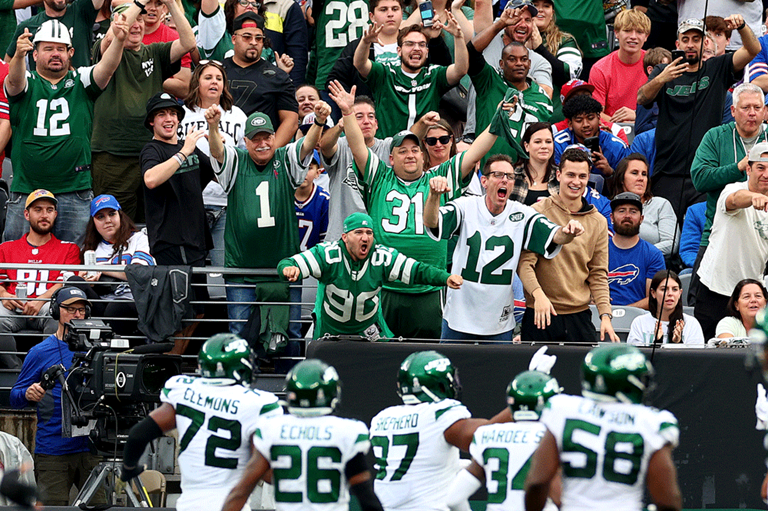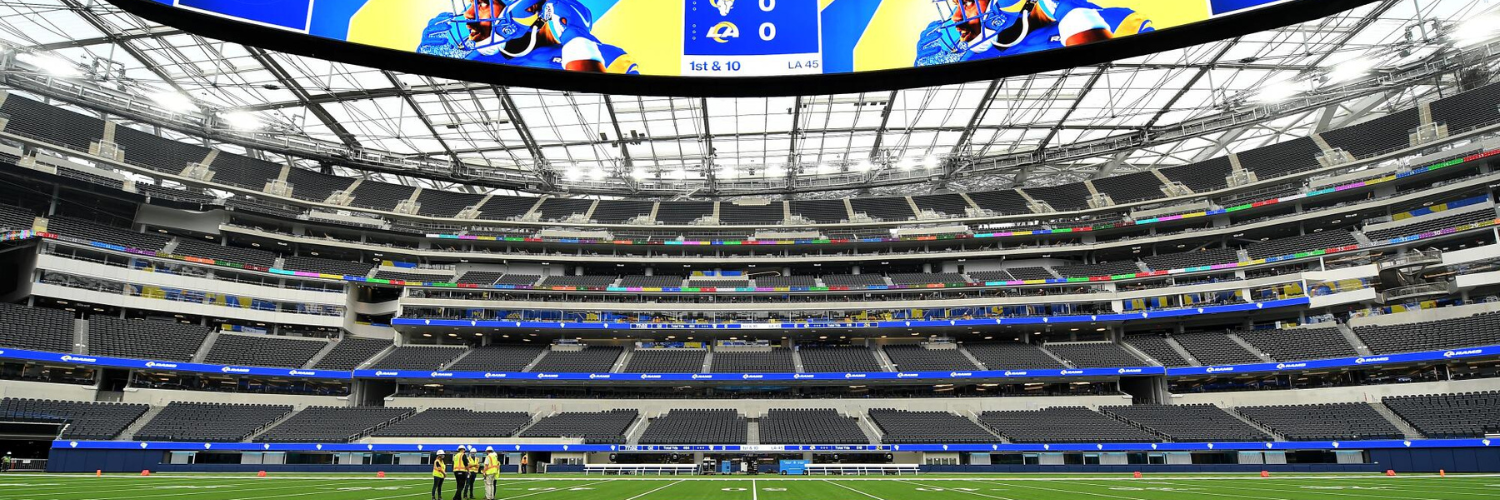Do NFL Owners Own the Stadium? NFL Stadium Owners
Exploring Stadium Ownership and Public Financing
The talk around NFL stadium owners and public funding is pretty layered. The question of who truly controls the venues is not straightforward. Often, it’s not the NFL team owners themselves, but rather a web of public entities, authorities, and private partnerships. Let’s table the economic debate and answer the question, “Do NFL owners own the stadium ? ”
List of NFL Stadium Owners
To better grasp ownership, let’s examine a list of NFL stadium owners, naming rights deals, and lease agreements.
Note that a stadium’s naming rights don’t necessarily dictate ownership. For example, while Las Vegas’ Allegiant Stadium bears a private company’s name, it’s owned by the Las Vegas Stadium Authority, a public entity.
| Team | Naming Rights | Owner | Rent/ Lease Expiration |
|---|---|---|---|
| Arizona Cardinals | State Farm | Arizona Sports and Tourism Authority | $304,749/ Exp. 2036 |
| Atlanta Falcons | Mercedes-Benz | Georgia World Congress Authority | $2,500,000/ Exp. 2047 |
| Baltimore Ravens | M&T Bank | Maryland Stadium Authority | $0/ Exp. 2027 |
| Buffalo Bills | Highmark Blue Cross Blue Shield of Western New York | County Of Erie | $900,000 + / Exp. 2053 |
| Carolina Panthers | Bank of America | Carolina Panthers | N/A |
| Chicago Bears | No Sponsor | Chicago Park District | $6,300,000/ Exp. 2033 |
| Cincinnati Bengals | Paycor | Hamilton County | $0/ Exp. 2026 |
| Cleveland Browns | No Sponsor | City of Cleveland | $250,000/ Exp. 2029 |
| Dallas Cowboys | AT&T | City of Arlington | $2,000,000/ Exp. 2039 |
| Denver Broncos | Empower | Metropolitan Football Stadium District | $3,250,000/ Exp. 2031 |
| Detroit Lions | Ford Motor Co. | City of Detroit/Wayne County Stadium Authority | $250,000/ Exp. 2037 |
| Green Bay Packers | No Sponsor | City of Green Bay/Brown County Pro Football Stadium District | $816,000/ Exp. 2031 |
| Houston Texans | NRG Energy | Harris County Sports & Convention Corp. | $4,100,000/ Exp. 2032 |
| Indianapolis Colts | Lucas Oil | Indiana Stadium and Convention Building Authority | + $2,000,000/ Exp. 2034 |
| Jacksonville Jaguars | EverBank | City of Jacksonville | $1,250,000/ Exp. 2030 |
| Kansas City Chiefs | GEHA | Jackson County Sports Complex Authority | $450,000 + / Exp. 2031 |
| Las Vegas Raiders | Allegiant | Las Vegas Stadium Authority | $0/ Exp. 2047 |
| Los Angeles Chargers | SoFi | StadCo LA, LLC | $1/ Exp. N/A |
| Los Angeles Rams | SoFi | StadCo LA, LLC | $1/ Exp. N/A |
| Miami Dolphins | Hard Rock | Stephen Ross | N/A |
| Minnesota Vikings | U.S. Bank | Minnesota Sports Facilities Authority | $8,500,00 / Exp. 2046 |
| New England Patriots | Procter & Gamble | Kraft Group | N/A |
| New Orleans Saints | Caesars Entertainment | State of Louisiana | N/A |
| New York Giants | MetLife | Meadowlands Stadium Co. | $2,500,000 (co-pay) / Exp. 2032 |
| New York Jets | MetLife | Meadowlands Stadium Co. | $2,500,000 (co-pay)/ Exp. 2032 |
| Philadelphia Eagles | Lincoln Financial | City of Philadelphia | N/A / Exp. 2032 |
| Pittsburgh Steelers | Acrisure | Sports & Exhibition Authority | $2,100,000/ Exp. 2031 |
| San Francisco 49ers | Levi Strauss & Co. | Santa Clara Stadium Authority | $24,500,000 / Exp. N/A |
| Seattle Seahawks | CenturyLink, Inc. | Washington State Public Stadium Authority | $1,000,000/ Exp. 2031 |
| Tampa Bay Buccaneers | Raymond James Financial | Tampa Sports Authority | $3,500,000/ Exp. 2028 |
| Tennessee Titans | Nissan | City of Nashville and Davidson County | $362,319/ Exp. 2027 |
| Washington Commanders | FedEx | Washington Commanders | N/A |
NFL Stadium Ownership Breakdown
Regardless of who owns the stadium, public funding has played a big role in constructing and renovating many NFL stadiums. Between 1970 and 2020, U.S. and Canadian state/local governments spent about $33 billion on major sports venues, per a 2022 survey.
When it comes to NFL stadium ownership, there are two main setups: public ownership and private ownership.

Public Ownership
Most NFL stadiums are publicly owned, with the local/state government or a designated public authority retaining ownership. In this deal, the NFL team typically holds a long-term lease granting them control and operation for a set period.
Public ownership is often driven by perceived economic benefits and civic pride of hosting an NFL team.
- CenturyLink Field (Seattle Seahawks) – Owned by Washington State Public Stadium Authority
- Allegiant Stadium (Las Vegas Raiders) – Owned by Las Vegas Stadium Authority
Private Ownership
Some NFL stadiums are privately owned by the team’s ownership group or an associated private entity. Here, the team covers full construction and maintenance costs which can become pretty hefty.
Private ownership gives teams more control over design, operations, and revenue streams.
- Gillette Stadium (New England Patriots) – Owned by Kraft Group ( Robert Kraft)
- Bank of America Stadium (Carolina Panthers) – Owned by Carolina Panthers
Team Revenue and Deals
While not always stadium owners, NFL teams still benefit greatly from venue revenue streams – ticket sales, concessions, naming rights, and partnerships.
Stadium deals often involve agreements outlining rent, revenue sharing, and facility control. Teams may negotiate lucrative deals giving them a larger revenue share, even if not outright owners.
MORE: HOW DOES THE NFL MAKE MONEY?
Economic Impact
Most NFL teams (21 out of 32) play in stadiums over 20 years old. Many of these older stadiums are owned by cities, and the leases require the local government or taxpayers to pay for future renovations. Critics argue stadium construction and operation can displace residents, increase traffic, and divert public funds from essential services. Plus, sports spending may simply shift consumer behavior rather than generate new economic activity.
Proponents tout potential job creation, tourism growth, and development, but academic studies often find limited long-term economic benefits for host cities.
For context, the total annual revenues generated by a sports team relative to its host city’s GDP, is roughly between one-third and one-twentieth of one percent to the local area economy.
Ultimately, a stadium’s economic impact depends on factors like the specific deal, the community’s existing economic landscape, and overall facility management and usage.

